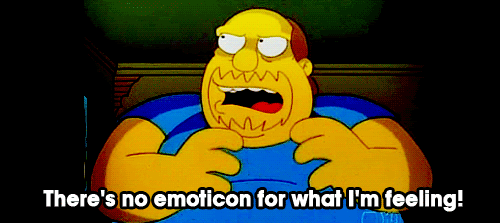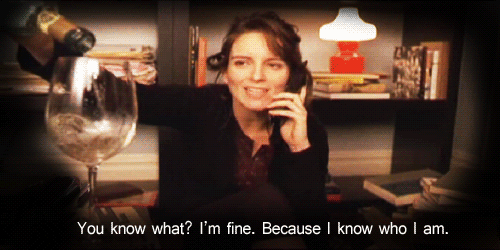A Guide to Understanding Young People Who are Already Divorced
I tend to focus on the happy-go-lucky aspects of healthy relationships because, well, that’s where I’m at right now. But I was talking with an old friend recently who is going through a divorce. And she’s not my only friend in her twenties who is experiencing the end of a marriage.
The idea of breaking up with my husband is totally foreign to me, which is probably a good sign. Still, I try to put myself in the shoes of my divorced friends to understand how things went wrong, what they’re facing, and any possible ways to give them support.
Of the handful of women I’ve talked to who’ve experienced, or are currently experiencing, a divorce in their twenties, there are two common themes:
They knew it wasn’t right when they got married
The biggest pain is not necessarily losing their spouse, but feeling shame
Let’s start with number 1, because that’s the logical place to start.
Why? Why would you get married if you know it’s not right? Well, there seem to be a few different answers. My husband told me that he proposed to his ex (nearly a decade ago now, and the wedding never happened) despite a sinking feeling that he wished he could get out of the relationship, because he couldn’t let go of the picture he had painted for their future. I think most of us have been there. Even when reality doesn’t match the picture, sometimes we just can’t let go of “what could be.” We fight for relationships even with the nagging feeling– or blatant display– that something is missing, like compatibility, attraction, trust, communication, chemistry, etc. [This is hand-in-hand with my post about red flags in relationships.]
Aaron’s explanation matches the same one I’ve heard over and over from many of divorcees. They said they couldn’t imagine a life without that person, be it out of fear, dependency, stubborn loyalty, or fantastical dreams for their future together…and the relationship became more about fulfilling that dream instead of about, well, the relationship. The thing is, not being able to imagine your life without someone doesn’t mean that a life with them is the best choice.
I can imagine my life without Aaron, actually, but it would be filled with far fewer laughs, no fun makeout sessions to pass the time during commercial breaks, and less cookware. Way less cookware. (Anyone who has seen his collection of pots and pans can vouch for this.) That’s the difference I think…I’m not addicted to Aaron. He’s simply an irreplaceable addition to my life that I never want to lose.
The line between addiction and deep, loving attachment is a fine one, but the easiest way to tell the difference is a clarity of life without a person. With an addiction, you can’t even wrap your mind around their absence. With healthy attachment, you can wrap your mind around it, but know that their love makes life so much better.
I’ve personally tried fighting for a few relationships that were missing one or more pieces of the puzzle, but thank goodness those romances never culminated in an engagement. Still, I understand why some people make it all the way to the altar with a person they know deep down isn’t a good match. Heck, if I’m being brutally and embarrassingly honest, I was so addicted to some of those unfit men in my past that I probably would’ve accepted a proposal from two or three of them if they’d been crazy enough to ask. Boy, I’m sure glad they didn’t. Nonetheless, it helps me understand why some women chase that picture of a life with a person who isn’t right for them all the way down the aisle.
The three other prominent reasons twenty-something divorcees (at least the ones I know) said they knew deep down that the relationship wasn’t right before saying “I do” (beyond a blind addiction to that person) are A) Feeling trapped, B) Societal pressure, and C) An undefined sense of self.
A) FEELING TRAPPED:
I’ve heard some girls say that they weren’t addicted to the person, nor were they all that determined to make it work. Instead, they were extremely cognizant of their unhappiness, but didn’t know how to express that to their partner or family, because they’d been together for so long– or because their partner was so excited and invested that they felt too guilty ending things.
B) SOCIETAL PRESSURE:
Keeping up appearances is a real issue when it comes to rushing into marriage. Women our age increasingly yearn to have whimsical wedding photos to share on social media, and want to keep their lives moving “in the right direction” when compared to everyone else. Dream job, marriage, babies, family vacations, next, next, next. Gotta move that train along! Maybe the person holding your hand in the dreamy sunset shot at your vintage winery wedding doesn’t exactly get you, but at least the pictures are pretty!
I’m sure Aaron and I will face harder times than we have yet to battle in our relationship, but I feel so lucky that I ended up marrying someone with whom I know is my perfect mate. I got to feel complete elation and confidence on our wedding day, and actually cared far less than I thought I would about the “day,” and cared far more than I knew possible about spending all of the days of my life after the wedding with him.
C) AN UNDEFINED SENSE OF SELF:
Age has a lot to do with “knowing yourself,” which is an issue that plagues many young relationships. Some of my friends who got married in their early or mid-twenties are completely happy in their marriages. Then there are the ones who are now divorced, and those friends often point to not knowing what kind of person they were when they got married. We all grow into ourselves at different stages of life, but our early twenties tend to be when we’re most malleable.
Of course there are the exceptions, like people who already have a strong self-awareness at age 23, or those who were lucky enough to marry someone that changed and grew with them, not away from them. But one thing is clear: It’s important to have a firm grasp on your preferences, weaknesses, strengths, passions, beliefs, goals, and tastes before you can even know if those things will align with another human being.
So, if there is anything I can say about marriage for those of you who still have time to only accept a proposal from someone who is your undeniable match: Wait for compatibility. Wait for the spark. Wait for the right one. Wait for the easy one. Wait for someone who understands you without training. And the “you” he understands should be adequately developed. And vice versa.
THE AFTERMATH:
Now onto what happens to my smart, kind, loving, spiritual, and wonderful friends who said “I do” to the wrong guy. Here they are, 6 months, two years, or five years later, trying to figure out what it means to be young, beautiful…and divorced. How to navigate the turbulent waters of telling their family that the beautiful wedding they spent months and months planning– and paying for– didn’t produce a lasting couple, explaining to their friends what happened, and wrestling inside with self-hate, shame, deep sadness, anger, guilt, and…wait, could it be…relief? Excitement? A little bit of everything?
Divorcees seem to have a wide array of reactions. As far as their ex-spouse is concerned, most of my friends are on remarkably stable terms. Only one of them is not on civil terms due to infidelity…which is understandable. But interestingly enough, for most of the girls I’ve talked to, dealing with their ex is the least of their problems. Mostly, they struggle with reactions from parents, friends, and even strangers.
Most parents are initially angry, especially in the cases where those marriages ended before the wedding was fully paid off. But it goes beyond the money. From what I’ve gathered, parents feel like their child didn’t try hard enough, or are embarrassing the family name. And sometimes there’s a religious aspect, which can easily spiral into a whirlwind of judgement.
When it comes to friends and strangers, my friends say that most people are supportive, but there are definitely a few who display condescending attitudes, or make snide remarks that insinuate that the divorcee is immature, pitiful, or unsophisticated.
Oh, and to top it all off, divorcees have to deal with this scary question: Will another person ever love me?
I do not condone divorce, in general, but that does not mean I judge or condemn those whose paths lead them in that direction. Who am I to do that? My job is to do the best I can in my own life– which, by the way, is full of mistakes and unfortunate situations, itself– and to love on and learn from people dealing with their own set of struggles. Also, half the people who get divorced don’t condone divorce either, just so you know.
Trust me, divorcees are dealing with enough judgement (self-judgement, familial judgement, etc.) to need friends or acquaintances or Facebook stalkers to add to the pile. Plus they’ve got a few other things on their minds, too: Saying goodbye to the vision they’d built for their future with that person, perhaps getting a new job in order to be able to support themselves financially, splitting personal belongings, killing spiders by themselves, etc. After talking with my friends who’ve endured such a painful process, I, for one, refuse to add to their pain with judgemental or insensitive remarks.
Challenging a friend or family member to work harder on the relationship through counseling, prayer, etc. is fine. We all need people who love us enough to push us. But once the decision is clearly made, we little earthlings who so easily think we have all the answers need to let go and let God. Even if your belief in Him is why you so firmly think your friend, daughter, sister, whomever is making the “wrong decision,” eventually, you have to let go of being the indignant teacher, and just trust in God. Pray, show love, and resist the urge to be self-righteous.
So, what’s the point of this post? Well, hopefully it has a little something for everyone. A little wisdom for singles. A little gratefulness for the happily marrieds. A little encouragement for the divorcees. And a little perspective for all of us who have seen someone– particularly a young person– deal with divorce. That person is going through one of the most difficult and painful challenges he or she will ever face, so shower them with hope, faith, love, and wine. It doesn’t mean you have to “agree with divorce,” but it does mean you may have to give yourself a big dose of humility in remembering that you, too, have made massive mistakes or faced a heartbreaking situation in which you swore you’d never find yourself.
Let he who has not sinned cast the first stone. As for the rest of you, let’s wrap this world up in love. And wine. That always helps, too.




